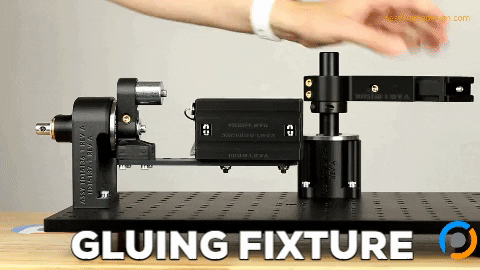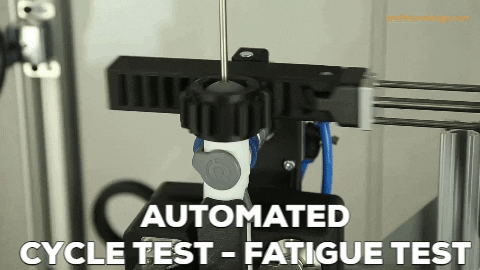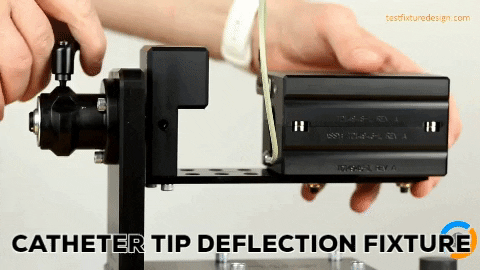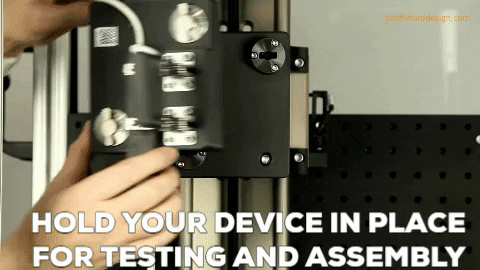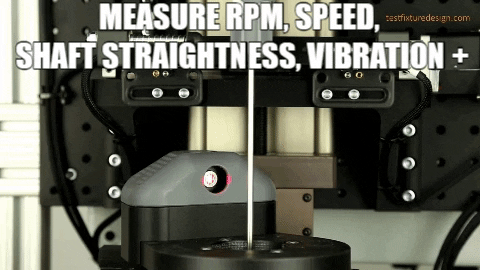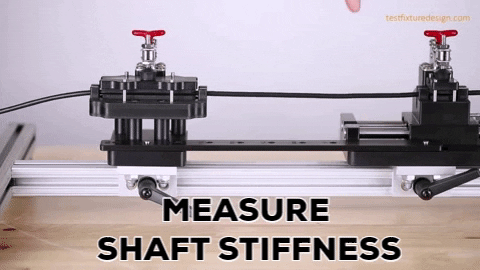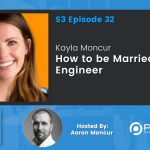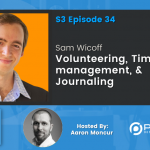Brett Dooley | Technical Sales, Nuclear Reactor Technology, & Freedom
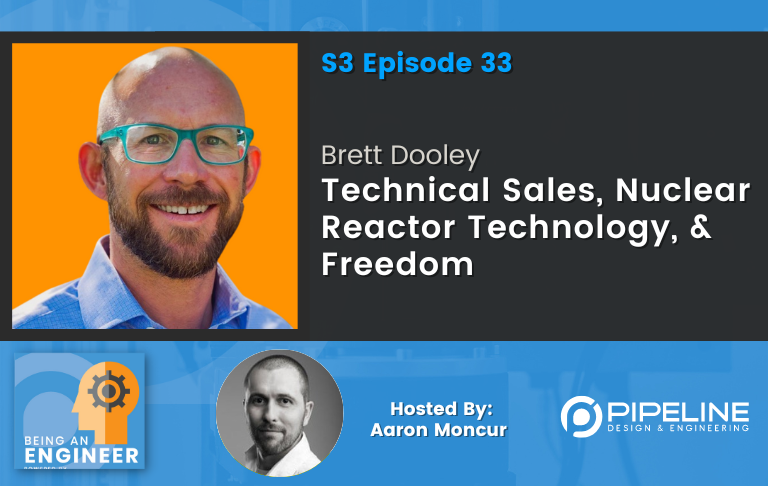
Who is Brett Dooley?
Brett Dooley is a mechanical engineer at Bosch-Rexroth. He collaborates with business owners as well as engineers to develop targeted solutions for motion control and automation challenges. Brett uses his wide experience in business development, industrial repair, and a decade as an electronics tech in the US Navy submarine force to ensure delivery of an effective and robust automation system.
EXPAND TO VIEW EPISODE TRANSCRIPTION
SUMMARY KEYWORDS
engineer, people, sales, engineering, job, submarine, technical, role, day, bosch, work, absolutely, talking, drydock, project, sitting, thought, brett, answer, company
SPEAKERS
Presenter, Aaron Moncur, Brett Dooley
Presenter 00:00
Hi everyone. We’ve set up this being an engineer podcast as an industry knowledge repository, if you will, we hope it’ll be a tool where engineers can learn about and connect with other companies, technologies, people, resources and opportunities. So make some connections and enjoy the show.
Brett Dooley 00:18
The sales engineer job has a lot of freedom in your day to day job, that I’m not sure a lot of people would want to give up to be honest once you’ve got a taste for it, so.
Aaron Moncur 00:40
Hello, and welcome to the being an engineer Podcast. Today we’re speaking with Brett Dooley, who is a mechanical engineer at Bosch Rexroth. Brett collaborates with business owners and engineers to develop targeted solutions for motion control and automation challenges. He uses his wide experience in business development, industrial repair, and a decade as an electronics tech in the US Navy submarine force to ensure delivery of an effective and robust automation system. And because I’ve known Brett for several years, I’ll add that he’s also just a really nice guy and a pleasure to work with. So, Brett, welcome to the show.
Brett Dooley 01:18
Thank you very much, Aaron, I appreciate you having me on. It’s a great podcast. Absolutely.
Aaron Moncur 01:22
Yeah. So, Brett, we’ve worked together for several years, actually. And I don’t think I’ve ever asked you the question, what made you decide to become an engineer?
Brett Dooley 01:33
That is such a long answer overall. But I’m going to really try hard to summarize that a little bit. So I don’t know what it is about me as a kid. But I knew I was going into some sort of science and engineering for as far back as I can remember. Even went to space camp back in the day. So we’re actually talking about sending my son soon, just because it’s interesting. It’s kind of fun. But I remember always being really into trying to figure out how to do things, make things work, you know, I took our broken VCR apart when I was a kid thinking I’d be able to fix it, not realizing that it’s all PCBs and stuff like that, where no 10 year old kid can do anything to fix something like that, right. But I took it apart, I thought I’d be able to put it back together, and then it went into the trash. So
Aaron Moncur 02:25
that isn’t a telltale sign for an engineering engineer in the making. I don’t know what is
Brett Dooley 02:30
taking stuff apart and throwing it away?
Aaron Moncur 02:34
At least the first part, taking it apart with the intention of fixing it. The confidence that you that you had to do that in the first place, I think is that’s a telltale sign of an engineer. Yeah, I’ll figure it out. Right, I’ll take it apart and I’ll figure it out.
Brett Dooley 02:48
Oh, I had no doubt in my mind, I’d be able to fix it right up until I got it apart and realize there was no chance. But that’s the kind of stuff I did I you know, I went through high school, I was really concentrated on science and math and things like that. And then after high school, you know, I was gonna go into college and go into an engineering program. But, you know, I was talking to relatives and stuff. And so I actually ended up deciding to go into the military for a little while instead. So I just delayed going to college for the engineering degree for about a decade. But I still ended up here.
Aaron Moncur 03:20
Great. Well, I definitely want to dive into the the military portion of your career as well. Before we get there. Let’s talk a little bit about where you are right now, which is in sales. You’ve been there for some time. What prompted you to make that transition from I think it correct me if I’ve got the timeline wrong here. But I think directly out of college, you went into a technical sales position. Is that right?
Brett Dooley 03:43
Yeah. So I guess just not to get into the military part. But timeline wise, 11 years in the military. Then I went to ASU law actually went to Chandler Gilbert Community College for a little bit to finish the associates. And then I went to ASU, finished mechanical engineering degree. And then right out of the box, or right out of the school, I kind of had several options, like Palo Verde nuclear power plant, had a job offer there because they wanted engineers with nuclear experience. A couple other companies had very traditional engineering roles open for me. And then there was a company that was a distributor for automation in motion control equipment that had a job opening and made an offer. And I just saw what they did there and looked at how they got to see five different projects every day. And every week you are you’re jumping from project to project to project. And I don’t know if this some says something about how my brain works. But that was very attractive to me versus the concept of sitting in one spot and working on one project for an extended amount of time before you see any results. So I just really liked the fact that I’m bouncing between anywhere between five and 20 projects in a day, and it really keeps me active and engaged and and I really enjoy that side of things. And it lets me really focus on conceptual design in a lot of ways, coming up with ideas and concepts and things like that kind of daily basis without ever having to do the, I would say the hard work, which is actually sitting down and making it all work, which is what you guys do. But I can fortunately stay in the conceptual world quite a bit.
Aaron Moncur 05:21
That’s a really good way to put it. I’m not sure I’ve heard someone put it in in such an effective and concise way that the role of a technical sales or application engineer, you get to work on kind of the fun stuff, right, coming up with the high level ideas. And then you get to hand it off to someone else to work out all the details. That’s, that’s a really good sales pitch for a role like yours, I think, and I don’t I could be wrong, but I get the sense that engineers who are in training you they’re going to school, they might, they might sales, technical sales, applications engineering might not even be on their radar. And if they were to hear about it, they might say, well, that’s sales position. I’m currently training to become an engineer, why would I want to do sales. And that’s, I think, a really good pitch for why someone training to be an engineer might want to go into technical sales, applications engineering, because they get to see all these fun things and work on the high level ideas. But but not not need to get bogged down with working out all the details, which anyone who’s ever done any manufacturing drawings will tell you is no fun.
Brett Dooley 06:28
Oh, absolutely. I would agree with that. Now, we do get bogged down in a lot of details quite a bit, you know, when one of my customers asked me for a pin out for a drive to make sure all the wiring diagrams are done correctly, I can’t stay in the conceptual realm for that, you know, we need to dive in, we need to give him the correct answers. But I’m doing 10 to 20 of those a day versus concentrating on that one cable that he’s trying to design. Right. And so yeah, so it just, I hate to throw this word out there that I’m about to throw out anyway, because it has kind of a it has a connotation behind it. And it’s not even that true, probably. But it’s a good way of saying, I think the mindset that you know, you hear about add, right, add people who who need a lot of stimulation and a lot of change and a lot of things happening. And that seems to be kind of the mindset of where I see is, I really want to move from thing to thing to thing, and do a lot of things at once. And this allows me to do that. And I have a lot of fun doing that. So I think that’s the key.
Aaron Moncur 07:29
What’s the correct title for your role? What would you describe yourself more as technical sales, or applications engineer, or both, or something else entirely,
07:40
I very much falling into the technical sales category. Now, my official title is account development manager that that implies, I think, a little bit too much of a business role for what I would say I really do on a day to day basis right now, because I really do get into the technical weeds, and help people make things work and use my engineering degree for what I do. So I don’t want to, I’m not sure I like the official job title for to describe what I actually do. So technical sales is great applications engineer is actually a separate person at our company. And it deservedly is a separate person, they really do spend a lot more time getting into the weeds and getting into the details of making sure everything works. In fact, I really rely on those guys to make sure that I don’t give somebody bad information. Because they tend to be experts in a more narrow range of technology. And so it’s very difficult for me to be a broad, Encyclopedia of all knowledge. I fact, I can’t do that, I will freely admit that I’m not that I really rely on the applications engineers, when I have a question that needs a correct answer has to be 100%. Correct from day one, to make sure that I’m on track.
Aaron Moncur 08:57
Got it? Okay. Thank you for clarifying that. Alright, so you went to school to become an engineer, you spent, you know, four years or whatever it was, and you come out the other end, and you go into a sales job? How did you know that you could do sales, you just spent the past four years of your life in school to become an engineer. So you have that background? And you mentioned that you certainly use that that degree in technical sales. But what about the other aspect of the job, which is sales? How did you know that that you could do that? Did you have some kind of special training before you got into it? What what happened there?
Brett Dooley 09:32
Well, I do have a cheat code for that. That made it actually very easy. Now, I’m going to tell you what it is in a second. But I gotta admit, I was actually very frightened that I was making a very poor decision when I first got into it. Because I felt like once I made the jump into sales, technical sales, even even though it still has a lot of engineering components there that I would pretty much be guaranteeing that I would never be able to work as a traditional engineer ever again. That was the that was the big fear I had going into the whole thing is that I was basically writing that career path out of my life. Right. And, and I was going to be stuck, even though I don’t feel stuck now. But that was the fear at the time is that I would be stuck in a job that Ooh, what if it doesn’t work out? Right? So I absolutely had that fear of going in. However, in my navy experience, I actually did about three years as a recruiter in there, which I would call, I would call that about as intense of a sales program as you can ever go through. And I gotta be honest, I did not enjoy being a recruiter that much that that was not, but that was there was no technical there, there was no engineering there. And that’s, that’s where we started this whole thing is I really enjoy science and engineering and things like that. A military recruiter fills none of those buckets, right. So I knew I could do it, because I do done it, even if I didn’t enjoy it that much. And then you bring the fun stuff, and the science and technology, all the all the new stuff like that. And all of a sudden, I felt like it could make it a lot of fun.
Aaron Moncur 11:03
Got it? Okay, that makes a lot of sense. So it wasn’t so difficult for you to go from an engineering background into sales. You mentioned that you’re really scared that what if I made the wrong decision? What if I don’t like this? And I want to go into more of a traditional engineering role. I’m not sure if I can do that after having gone into sales. At this point. Have you seen many people make that transition spending, whatever it is 5, 10 years in technical sales, and then moving into more of a traditional engineering role is that how, how feasible is it for someone to make that change?
Brett Dooley 11:40
That’s a great question. And I, I have very rarely seen it. And that might just be because the people that gravitate toward this job from the get go, are a good fit, and don’t always want to go back the other way. I sometimes I see business development, guys, for companies kind of fall over into the engineering side, because they do it internally with their own company by helping and doing things like that. I’m trying to think of an example of ever met a sales engineer who actually went to an engineering job, I’m sure they’re out there, but I can’t think of one. So I’m just not sure that happens very much. Yeah. Yeah, I think I think there, the sales engineer job has a lot of freedom in your day to day job, that I’m not sure a lot of people would want to give up to be honest, once you’ve got a taste for it. So so I don’t know it’s there. It’s an it’s a fun job that I keep saying that word, it’s a lot of fun to be able to do do what we do. So I just don’t know how you would go back the other way. And at this point, I’m not really looking. So
Aaron Moncur 12:47
yeah, what are some of the freedoms that you enjoy being in technical sales.
Brett Dooley 12:51
So first and foremost, you know, any good organization that you’re going to work for in this type of job allows you to run your area, whatever it is kind of as your own business. As long as all the goals and the targets are met, at the end of the day, what you do on a day to day basis to meet those goals is very much up to you. If you’re not meeting the goals and numbers, then obviously, there could be some management discretion on what’s going on. But I gotta be honest, there’s no difference between that and the CEO reporting to his board. Right? There’s no difference. And how those two things go together. That CEO has to meet his minimum numbers needs to meet everything to for the board not to take over or remove him. So to me, it is completely like running your own business, other than the fact that I didn’t have to buck up all the startup capital, which is really nice. Not to have to do that not to have to do fundraising on the side, I just get to do the fun part of the job. So yeah, I would say that’s, that’s the big part of that, that that I enjoy.
Aaron Moncur 13:55
That’s a great point, I can see how that would be attractive to a lot of people. So it sounds like it’s a much more results oriented role, as opposed to you know, here’s a task that you’re going to be micromanaged on. Absolutely.
Brett Dooley 14:11
That’s a great way to say it. And hopefully everybody’s not out there being micromanage too much. But it’s, it’s nice to to be in a role where you have the freedom to set your day daily schedule in a way that will maximize your usefulness and productivity.
Aaron Moncur 14:30
Now that infers something else, which is that people who go into technical sales really have to be they have to be motivated of their own accord, right? I mean, they can’t be relying on someone else to motivate them. They need to be of the personality type that is internally driven, or else seems like that would be a tough role to handle if that wasn’t the case.
Brett Dooley 14:51
Absolutely. If it would be very easy for anyone in this role to just not answer emails or phone calls and take the day off or Right, that that is, there’s the flip side of this whole thing is you are the point of contact for anyone you’re working with. And so if the phone rings, the impulse is to answer the phone, answer the email. And that’s always going to be there. If you ignore those too much, you’re going to find that your customer base doesn’t really want to reach out to you anymore, which is a death sentence in the sales industry, right? Yeah, you want people to reach out to you to ask you questions to find out what they need. And you have to be available for that. And you’re right, you’d have to be driven to set things up, you have to reach out to people if you haven’t heard from them or while keep track of that, and, and hopefully, and I wish I could say I did a great job of that, that I every day find myself finding someone I haven’t talked to in a couple months, and should probably reach out to them. And so I’ve add them to the list for that day.
Aaron Moncur 15:53
Well, I imagine that there are some engineers listening to this, who might be considering going into technical sales, either now or in the future. What should they be thinking about? That maybe they don’t even know that they don’t know, at this point about that, that type of role.
Brett Dooley 16:11
I would honestly be very surprised if there were that many people who knew that technical sales was a career path. For an actual engineer. I think a lot of people think of this the sales force for any kind of engineering company, as a dedicated salesman that may not even have a technical background. And there are some companies out there that do it that way. I know when I went to college, I had no idea technical sales existed. The only reason I found out about it was because I applied for a random job that was talking about automation and motion control, precision, things like are they all the the terms that kind of grab your attention, the cool stuff. And so I applied to the job not even realizing that it was a technical sales role. And that’s the job I ended up going with is as I went through the interview process, and met everybody, I started to understand what the job entailed. And a lot of lightbulbs turned on about how fun that could be. But no one in college ever mentioned that that was a role for an engineer. I don’t know whether they look at that as a conflict of interest for an engineering program, or why that is. But I’ve actually been asked to speak at high schools and colleges in the area, specifically on this topic, because nobody knows about it. And they want to educate their students. So there’s a few schools that have been trying to broaden everyone’s perspective about the type of jobs that are out there. So anyway, so I guess it’s
Aaron Moncur 17:39
like, it’s like you found this amazing vacation spot. And the people there, they don’t want to tell others about it. Right? They want to, they want to keep that vacation spot nice and calm.
Brett Dooley 17:49
I don’t know if I don’t know if the sales guys are trying to keep it a secret, because we’re the ones out there telling everybody about everything all the time. So we’re very outspoken about what’s going on. I just don’t know why I don’t know why students don’t know about that as a career path. So I guess that doesn’t answer your question at all. You asked me what they should be thinking about it. And I answered you why they don’t even know that they should be thinking about it, because they don’t know it exists. But once they know it exists, because now they’re listening to your podcast, and they know that this is a job and a career path. The things to realize is that you need to have a just what we said before, you need to be able to set your schedule, you need to be able to determine what is the next step at any given point. You can look at it as a different school of thought on project management. It’s all how to manage a project from start to finish. And at any given point, what is the next thing that needs to happen to keep the project on track. And if you can keep doing that, and keep reaching out to the right people. That’s all it takes to be successful. If you can do that. And it sounds easy, it’s a sentence. But there’s a lot going on there. There’s a lot of technical skills that you need to have, there’s a lot of engineering skills you need to have, you also need to know business, you need to be able to read a contract, right? There’s a lot of a lot of items in there that have to be taken care of to be able to fill that role. But that’s really the key. One thing you don’t need is to be an extrovert or some sort of super people person. You don’t need that. Oh,
Aaron Moncur 19:19
that’s a big point. Because I bet a lot of people think sales and automatically Oh, you have to be very jovial and outgoing and extroverted to do a good job in that role.
Brett Dooley 19:29
And I will agree that it probably helps, although it can be taken too far where there’s actually it gets to the point where you’re working with engineers who aren’t always the most outgoing. Some of them are some of them are right. And if you have a flamboyant, boisterous personality coming through the door, that isn’t always that welcome, either, right? So right so there doesn’t need to be some personality matching there for there to be a good working relationship just like a team of engineers inside of a company. There needs to be some sort of synergy between those guys or women, men, whoever it is, they need to be able to talk together and get along. And it’s the same thing with sales guys. That’s why technical sales, you don’t necessarily need that. Because you need to be able to work with engineers. That’s what we do. So, if you come from an engineering background, and you have a personality that likes engineering stuff, you’re gonna get along just fine. Yeah.
Aaron Moncur 20:22
Well said, Well, you were a chief petty officer and the US Navy submarine force for a decade, which I never knew until I started preparing for this podcast, and I was reading through your LinkedIn page. And I think what, that’s so cool. So you were heavily involved with with operating and maintaining nuclear reactor plants. Now, nuclear reactor plants? I’m assuming that’s the that that’s the nuclear reactor in the submarine. Is that right? Or is this like an external plant?
Brett Dooley 20:52
No, it’s the it’s the one that sits inside the submarine in a big compartment there.
Aaron Moncur 20:57
Okay. And what can you tell us? I’m sure, there are a lot of things. But maybe if you could pick, you know, a couple choice nuggets, what can you tell us about working with nuclear technology that most of us probably don’t even realize or appreciate? Okay,
Brett Dooley 21:12
well, I think one of the most interesting things that I always thought was just crazy blew my mind. And this is going to everybody that has that hasn’t been involved in this industry before. He’s going to think I’m nuts for saying this. But you get more radiation exposure on an airplane flight than you do sitting on that submarine.
Aaron Moncur 21:33
That’s so fascinating.
Brett Dooley 21:34
So the dosimeters that we were on the submarine when we’re gone, you know, we get, we get them read periodically. And there’s hardly ever anything on there. Because everything’s shielded the way it should be. We are warm specifically never to wear that thing on an aeroplane flight, because it’ll come back and we’ll all get flagged as having is a huge exposure on the submarine. And they’ll have just do all these reviews. Yeah, absolutely. Oh, my God, I’d love to do all these reviews on how you got exposed and what what did we do wrong? And it was all just a plane flight?
Aaron Moncur 22:06
So I mean, extrapolating from there a little bit, this is outside your expertise. I’m just rambling a little bit. Does that mean that flight attendants and airline pilots are at higher risk of radiation poisoning than your average Joe?
Brett Dooley 22:23
Well, I think radiation poisoning is probably strong, because that takes a very severe severe dose to actually get any kind of radiation poisoning, but there might be elevated risks of cancer or something like that. Yeah, absolutely. Wow.
Aaron Moncur 22:35
Interesting. Okay. All right. Great. I cut you off. Please continue.
Brett Dooley 22:39
Oh, no, no, that’s fine. That was always the thing that blew my mind the most. The other thing, I guess, which is not nearly as exciting, I don’t think I’m gonna get the same reaction out of you, is that the day to day job of a nuclear reactor operator, is to stare at a wall of gauges that doesn’t move. And if it ever does move, well, that’s a problem. But
Aaron Moncur 23:00
I can see why he transferred to sales. Yeah,
Brett Dooley 23:03
it was very much sitting for hours and hours and hours watching things not move. And oh, my goodness. So you have to come up with ways to pass the time that didn’t distract you from the job?
Aaron Moncur 23:13
What? Please share an example of some of these ways. I mean, what what do you do to keep yourself occupied but not distracted?
Brett Dooley 23:22
Mainly, just a lot of conversations in the room where you sit down, there’s four people, there’s a, an engineering officer, you’ve got the guy running the throttles that make the propeller move, and you’ve got the guy to your right, that’s actually running the entire electrical distribution network. He’s got control of all the main breakers and everything to make sure that no emergencies happens on the electrical side. You’re sitting right in the middle of all that, and everybody just kind of talks because there’s nothing else you can do. You’re not allowed to have cell phones, you can’t have a cell phone in there to distract you. You’re just stuck talking. The guys outside that are actually out in the engineering spaces, the engine room. They’re walking around there. They’re taking logs, they’re cleaning up as they need to things like that. But when you’re stuck in the box actually monitoring the reactor. There’s not a whole lot you can do because your job is literally to stare at that panel.
Aaron Moncur 24:09
Yeah, yeah. Wow. Okay, well, what were the scariest and most exciting times during that period working with with nuclear reactors, hopefully nothing too crazy, but Well, anything that stands out, so the
Brett Dooley 24:23
only time I was actually scared, like actually scared is our submarines. It was the USS Georgia if you want to look it up 729 It actually got converted to a guided missile submarine while I was finishing my tour there. But we were in drydock. At the shipyard where we dock and that’s Bangor, over near Seattle, West Side of Seattle was a little west of Bremerton. We were in drydock. This would have been in the 2003 2004 ish timeframe. There was a big earthquake. I don’t remember the exact number but it was like seven or eight I think six or seven or eight it was it was big enough to be really scary, damaged a lot of buildings. but a submarine on drydock. That means you’re sitting on concrete blocks, which are sitting on a big pile of concrete, which is directly connected to the bedrock of the ground. So if you want to talk about a easy path for shockwaves to get through, it’s all perfect. It’s like, it’s like, it’s like, it’s like copper for electricity, right, everything was just perfect to transmit all the shock and vibration, right to the whole the submarine. So, and also, if you ever find a picture of a submarine sitting in drydock, the blocks that you’re sitting on are actually only kind of under the middle. They don’t go very far out. Because normally, everything’s still and it’s there’s so much mass there that nothing can happen. So you’re actually on a pretty narrow platform. And then the the walkway, the gangway that goes between the submarine and the edge of the drydock for people to walk in and off. It’s just sitting there. It’s not tied down. Because it’s so heavy. That normally is not a problem. Yeah. So yeah, this earthquake kicks off, I’m back in the engine room and the entire place just start shaking more than I can ever imagine. And we it we all assumed that one of the turbans or something like that through a bearing, that we had no idea. We’re getting calls back from the captain over the speaker system, asking us what’s going on, we of course, don’t know what’s going on. So we’re asking them what’s going on. Nobody knows it’s an earthquake, because there’s no way to really transfer that information that quickly. By the time anybody figured it out, was over. Fortunately, nobody got hurt. Everybody took cover, the gangway actually somehow managed to stay in place, the ship managed to stay on the drydock blocks. But it was probably as scared as I’ve ever been sitting in that. Yeah.
Aaron Moncur 26:38
Wow. How lucky that nothing happened.
Brett Dooley 26:41
It was it was amazing. Yeah, absolutely.
Aaron Moncur 26:43
Count your blessings. All right. Well, in, in what ways? Do you think being in the Navy has helped you as an engineer? And are there ways that the rest of us can develop those skills or behaviors without being in the military? Not that we don’t want to be in the military? But if we just don’t have that opportunity?
Brett Dooley 27:03
That’s a great question. I did think about that a little bit, before we came on what what kind of advice I could give you, it is a very different job. There’s, there’s there’s so many differences to what you’re doing between the two, I think the one thing I really thought of was that the military, when something happens, and it needs to be taken care of your focus is 100% on that problem, from start to completion, and it never stops, unless somebody comes in completely takes over for you. And there’s a complete turnover of responsibility. But that only happens, you know, once a day, or maybe a half day or whatever the the long shifts are. So it really is your project and, and you’re focused on that project that problem 100% start to finish to the exclusion of a lot of other things. And when I just said that, I thought about how I’m going to contradict myself in just a second. But but just to finish the thought, the same way, when someone calls me up and ask a question about something that kind of becomes my focus 100% for for a time period, until I get the answer, and I get it to him. Now, maybe I have three of those standing in line. And there’s only so much you can do about that. But you need to get them an answer. And it needs to be right. And you need to get it to him as quick as they can so they can keep doing their job. So I would say the military really gave that focus where I don’t think I would have had that before. And maybe that was all that staring at gauges for hours at a time. That or maybe it was bootcamp or maybe it was something else. But it really, really gives you that focus. And that’s an important behavior, I think is it for just any job is to be able to focus your attention. Okay, now I’m going to contradict myself, Okay, I am in the middle of stuff all the time. And an email comes in with a quick question or something that I just need to get back a way out of my hands into somebody else’s hands so that something can continue. And it’s also a very important skill to be able to identify those kinds of things, something that where if I take five seconds out of my day right now and reply to it and get it out of my hair, then I don’t have to have it in the backlog. And I don’t even really have to do that much. Because it’s not me that has to do it. It’s this other guy. But I am in the way, because the person reached out to me with a question, I need to pass that along to someone else. And if I sit on that, that time clock of that other person doing their job doesn’t even start until I get my email out. Right. So there’s, so if there’s enough people in that chain reaction, you could be looking at weeks before you get a response if everybody waited to get to that thing in their queue, if that makes sense. Yeah, right. So so I, I can identify with that. And I say if that’s something I could take her five seconds, and then get back to what I was doing that I should just do that. And so so there’s both of those in there which are completely contradictory. Now that I say it but the ability to focus and I guess, leave that focus and then come back to Do it quickly is important. I don’t know how good of an answer that was. How can you learn that? That’s a great question for psychologist, I’m not sure I can really answer that. Practice it. Be aware, be aware that any roadblock you put up, can get magnified as it goes through everyone putting roadblocks up. So that whatever you can do to minimize that roadblock on your end, can can help significantly in the long run
Aaron Moncur 30:26
it, I’m gonna go in a little bit different direction here, it sounds like your experience, watching gauges that never changed, and thus having to figure out some way to distract yourself, which ended up being just talking with other people there in the room. It sounds like that may have been a pretty good training ground for getting into sales as well, just learning how to talk with people and have conversations. Is there any truth to that?
Brett Dooley 30:55
That’s probably true, although I’m sure everybody’s heard the expression talking like a sailor. And what that means I’m pretty sure this is a family oriented podcast. So I don’t want to say more than that. But there’s a lot of undoing that had to happen in there, too. But yes, I don’t know if I agree with you. There’s just a lot of talking. But Now granted, it was the same people, you know, for months at a time, you know, the same three or four people so, but yeah, absolutely. There’s probably a lot of that there.
Aaron Moncur 31:24
All right, well, I’m gonna take a very short break and share with the listeners that Team pipeline.us is where you can learn more about how we help medical device and other product engineering or manufacturing teams, develop turnkey equipment, custom fixtures and automated machines to characterize, inspect, assemble, manufacture and perform verification testing on your devices. We’re speaking with Brett Dooley today, who is currently working with Bosch Rexroth. Brett, what can you tell us about about how engineers leverage the products that Bosch offers?
Brett Dooley 32:00
I thought a lot about how to talk about our product line without being a sales pitch. I thought a lot about this.
Aaron Moncur 32:07
I’m excited to hear.
Brett Dooley 32:10
Yeah, I guess because I don’t want this to be a sales pitch. I’m not doing this as to try to convince everybody to run out to Walmart and buy some Bosch Rexroth stuff. However, what engineers find, and let me preface this, nobody on the West Coast hardly knows who Bosch Rexroth is, we have always our key industries have almost always been the auto industry, which means you know, the Rust Belt, all those areas, they all know who we are. We’re industry standard in a lot of the factories there. And on the West Coast, very few people know unless they’ve been involved in that industry. Or we do have a small foothold in some semiconductor manufacturing equipment, things like that. But that’s about it. Most people don’t know that we exist and what our product line is. The people who do know. And here’s the part I’ve been struggling with. And I didn’t figure out a better way to say it that we have, you can even look it up. You can even go across any company. We have the broadest line of automation equipment of any company out there. We have everything from hydraulics, to robotics to servos motion control. It’s we have mobile robots we have we have everything you can think of. We have it in our catalog, and it all works together. And it all does a good job of communicating and doing the job it needs to do. Okay, so that doesn’t answer your question. Yeah. So So why do engineers like working with our stuff? In general, it’s because it’s just easy to get configured. It’s easy to use. And it saves them time in their design process. So whether that’s through our help helping them with their design process and answering your questions, and getting them what they need, that a lot of the equipment just works well. It had a lot of good design behind it. And there is several tools in the toolbox to make things easy. Yeah, I don’t know how great a question or a great answer. That was. But that’s that’s, that’s how we help.
Aaron Moncur 34:12
I thought that was terrific. And I don’t think you need to be that worried about coming off as too salesy. I mean, legitimately people listening to this, they’re engineers, and some of them are doing automation. So to learn about a new, a new supplier, a new vendor like this, I think that’s, that’s useful. So I think that’s totally fine. And we’ll maybe talk a little bit about what, in what ways can engineers lighten their load and help multiply their efforts by by leaning on, I’ll say you but I’m going to refer to like the global you know, whoever they’re tied to technical sales representative is how can they multiply their efforts by leaning on their their sales reps?
Brett Dooley 34:57
Absolutely. So first, I would suggest looking and developing enough of a relationship with the sales reps for the companies you want to work with. And develop some trust there, do some do some work with them enough that you can trust what they’re doing is accurate and going to help you. Because the next thing I’m going to recommend is to stop doing so much work yourself. I have teams, I mean, literally teams of applications engineers, sitting in our offices around the United States, who are who are there to do engineering work for us. And for you. They come in, we have a project for them, someone wants to know the best way to do this. And they look at the catalog and they do all the specs crunching, and they do the Calculate load calculations, see how much torque is needed to do the job. And they put all that together into a final configuration, and they present it to you along with the work they did to get there and show you why that’s going to do what you need it to do. And all of that was just a matter of the engineer at the company that we’re talking about being willing to throw this information over the wall and get the results back with almost zero work on their part. There is some pre work in there. So you know, they need to have a set of specs to begin with, right? We need to know the mass, we need to know how fast it needs to go things like that. So there’s some pre work, those things need to be figured out. And we can’t answer that stuff. Because it’s not our system. At the end of the day. It’s not our product getting made or manufactured or so we need to know certain things about the process. But then a lot of work can get done for you. And having some trust with the sales organization to be able to get to you the right answers is a huge, huge help to lightening your workload.
Aaron Moncur 36:45
Yeah, I’ll second all that. One of the younger engineers here at Pipeline the other day, or maybe it’s a few weeks ago or something, I was talking with him, and he had an experience with it. I don’t know if it was you if it was someone else, but it was with a technical sales representative, representative. And this, this young engineer here was telling me I was blown away at how much work that they would do for me, I had no idea that there was a resource out there like that I thought I would just have to do all this work. But no, I just, you know, handed it off to the sales rep. And they came back with all these answers. Another another experience I’m thinking about right now, another engineer on our team, which I think was working directly with you on this one recently. And he was quoting a project he was doing, actually a concept phase of a project for which one of the deliverables was a concept design and a quote for the full development. And he was able to get all the CAD models from you for the automation equipment. And there was some like acceleration curves and things like that, that he got, and all the stuff that he would have had to spend, you know, hours and hours and hours trying to dig up himself, or just create outright from scratch, he was able to get from you and your team and put together this like really nice looking concept, it looked like it was fully engineered, you know, because they had all the right CAD models in there, all the Automation Components were were in there. And he had all the graphs and everything. And he was able to put that together in you know, a pretty reasonable amount of time, given all the content that that that we ended up delivering to our customer. So situations like that, it’s so it’s so useful and valuable to have good technical sales reps that that you can work with. And I think especially a lot of younger engineers just don’t realize how much how valuable a resource that is and that it’s okay. Not just that it’s okay. But you’re supposed to tap into that resource. You don’t have to feel guilty about it, right?
Brett Dooley 38:57
Absolutely. There’s, there’s absolutely no reason for guilt. Because if you don’t tap into it, somebody else is and they’re taking that valuable engineering time that you could have had access to. That is something that I see a lot in younger engineers, not mainly because they don’t know about it, but it’s across the board. There’s, there’s a lot of people that have trouble letting go of the process, right, and it’s hard to let somebody else and so even if we do something for him, they still go back and redo it all which is fine. For the first few times do that if that makes you feel more trust in it. But uh, but we’re hoping at some point, we can develop a level of trust, where everybody’s comfortable kind of throwing things over the wall, getting the answer back and moving on. And I would like to clarify, there’s no right time in the process to get that started. Well, I guess the sooner the better is the way I look at it. A lot of times I work with people that don’t even know what the project really is yet. They’re just kind of in a very conceptual phase. It’s maybe it’s something new maybe it’s a little bit r&d ish, because it hasn’t been done before. Things like that, and I I’ve heard people say, Well, I’m not going to reach out to you yet, because we don’t know what we’re doing yet. And I say, Okay, well, that’s fine. However, we have all these nice little sheets that you can fill out to ask about specs and targets and things like that, that maybe you don’t know the answers yet. But guess what we’re going to ask for those answers someday. And if you go into your design process, knowing all these parameters that are going to have to be defined at some point, it’s going to make your job a lot easier, because it gives you some focus. It’ll make you think of things that you wouldn’t think of otherwise. Right. And so there’s, there’s all these ways you can leverage just all the stuff that we’ve got sitting there to help the design process. And then if it’s later in the process, maybe you’ve got a full fully featured Statement of Work, everything’s ready to go. Well, that’s even better. As far as you know, our work is concerned, because we can just take that and turn it around and give you a final proposal without you having to really be involved too much more at that point. So there’s lots of scales in there. But that the earlier the better is the way I look at it. But at any point in the process, please reach out. And let us know how we can great,
Aaron Moncur 41:06
great, great. Well, I can say from experience bread that you’ve always been such a delight to work with. You’re You’re smart, and you’re responsive, and you’re creative, and always willing to share your knowledge with us, even if it isn’t directly related to a sale. And I’m curious to hear about kind of what your philosophy is on sales and what principles you follow that make you so easy to work with. And maybe you can answer that within the context of let’s say that I’m an engineer listening to this, and I’m not fortunate enough to be in your particular area, what what attributes should I be looking for in the salesperson that I might work with that that are going to say to me? Yeah, this is this is a person that I want to establish a relationship of trust with and start working with?
Brett Dooley 41:56
Sure. What first 100% First thing is responsiveness. If somebody emails me or gives me a call, even if I don’t have time to talk to them right away, I let them know that I got their message as soon as I can, so that they’re not sitting there wondering, I don’t know if you’ve ever been ghosted on a text chain. Right? And when you sit there a week later is, hey, this person never got back to me. That is, that’s no good, right? projects don’t stop while you’re waiting for answers. So maybe I don’t have time today. And I can get to at the end of the week, I’m going to let them know that I got the message. I don’t have time to do it right now. And I will get to it at whatever that date might be. Just so there’s no question. And if that’s an issue, then they can come back and say, Hey, I hear what you’re saying. I have a report due tomorrow, and I can’t wait for that. Is there anything you can do? And then I can say, Ah, let me let me see right and work on that. So somebody that’s willing, let somebody that’s willing to, to really be responsive, is 100%, the person you want to you want to be spending your time with in this type of role. The second thing is don’t have, I guess, I should say, right, because you’re asking about sales engineer qualities, they should have a not, they should not have a scarcity mindset. I don’t know if you’ve ever heard people talking about that before. But if you go out into the world, realizing that there’s so much business out there, that all you can try to do is keep up with the amount of work that you can keep up with, if that’s kind of your mindset. Rather than every time a project comes your way, you’re going to pound it into the ground until you get that money. Right, those are kind of two different ways of looking at it. I am much more on the side of believing that there’s so much work out there that I would never have time for at all anyway, I need to focus on relationships, when something comes my way, if it isn’t a good fit for what I can offer them, I need to tell them that and even better, tell them where to go, that is a good fit, because I’ve been around enough to have seen what everybody’s specializes in. And I could probably save them a lot of time by just referring them to the right person that would even save them time versus doing it through me if I tried to shoehorn my company into a project that just isn’t a good fit for them. It’s just better for everyone. If we know where are our niches, and we stay there. And we end if something doesn’t fit, we let it go. And you can’t do that. If you’re so worried about tomorrow’s paycheck or tomorrow’s commission check or whatever it is that you you keep leading people down the wrong path. That’s that’s that’s a recipe for failure in the long run. Nobody’s gonna want to talk to you anymore. Yeah.
Aaron Moncur 44:34
Amen. Well said, Well, just a couple more questions. And and we can and see, I’m trying to decide which ones I want to ask. Let’s start with this and what what what are the biggest challenges that you face at work?
Brett Dooley 44:50
So I would say probably the biggest challenge is just brand recognition, name recognition right now and people knowing who to call. Like I said, Rexroth does not have a big footprint in the western side of the United States right now. And part of the reason why I came on board was to be somewhat of a brand ambassador, and provide a lot of outreach about what we can do to try to change that a little bit. So, so having the name recognition, so when somebody has a problem in front of them, they know who to call. That’s, that’s 100% of my job in a lot of ways. And so that’s also the challenge that I’m focusing on, doing a lot of things to try to increase that through networking, through referrals, things like that. But that’s, that’s most of it. I just, I need people to, to know about us and have it in their mind.
Aaron Moncur 45:40
Okay. All right. Well, Brett, how can people get in touch with you?
Brett Dooley 45:47
Okay. So best way is either email or phone call. I would say, if you just put my email address in there, brett.dooley@bosch.com. That’s about as easy as an email I think I can get. You’re welcome to give me a call on my work, phone 510-605-6751. And then, if you throw Bosch Rexroth into Google, you’ll get right to our website, you can see everything we’ve been talking about. And there’s ways to contact through there, but they’re not going to go directly to me.
Aaron Moncur 46:18
Great. And we’ll have some links in the show notes as well. All right. Well, Brett, anything else that we haven’t talked about that you think we should? Oh, man,
Brett Dooley 46:27
it’s really hot outside. And I’m a little tired of the summer. So I’m getting ready for for wintertime. Although in the wintertime, I always sit there and say I’m ready for the heat. So. So it’s just an endless cycle. That’s about all I can think of right now.
Aaron Moncur 46:41
Yeah, we’re having a little reprieve from the heat this week. Even here in Arizona. It’s only supposed to be up to about 100 degrees this week, as opposed to the 110 plus we’ve been having lately. Yeah, it
Brett Dooley 46:52
sounds like a lot still, but man, it feels good.
Aaron Moncur 46:58
All right, Brett. Well, what a delight talking to you. Thank you so much for spending some time with me on the podcast. And I’m sure you and I will talk soon again.
Brett Dooley 47:06
Sounds great. Thank you for having me.
Aaron Moncur 47:12
I’m Aaron Moncur, founder of pipeline design and engineering. If you liked what you heard today, please share the episode. To learn how your team can leverage our team’s expertise developing turnkey equipment, custom fixtures and automated machines and with product design, visit us at Team pipeline.us. Thanks for listening
We hope you enjoyed this episode of the Being an Engineer Podcast.
Help us rank as the #1 engineering podcast on Apple and Spotify by leaving a review for us.
You can find us under the category: mechanical engineering podcast on Apple Podcasts.
Being an Engineer podcast is a go-to resource and podcast for engineering students on Spotify, too.
Aaron Moncur and Rafael Testai love hearing from their listeners, so feel free to email us, connect on Facebook, Twitter, Instagram, and subscribe on Apple Podcast and Spotify!
About Being An Engineer
The Being An Engineer podcast is a repository for industry knowledge and a tool through which engineers learn about and connect with relevant companies, technologies, people resources, and opportunities. We feature successful mechanical engineers and interview engineers who are passionate about their work and who made a great impact on the engineering community.
You’ve read this far! Therefore, it’s time to turn your headphones up and listen now to this episode to learn all these. Don’t forget to tell your friends who might like this too!




